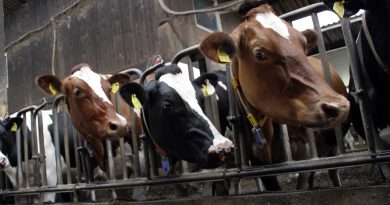Two Steps Forward for Ending Drug Tests on Animals in the U.S.
Image by Roland Kuck from Pixabay
We wish to acknowledge the work of Citizens for Alternatives to Animal Research and Experimentation (CAARE) on the issue of animal testing, and share this update that they sent out.
Posted by Barbara Stagno · Contact Author · on June 20, 2022
Two major breakthroughs last week paved the way for an end to the use of animals in drug tests.
On Tuesday June 14, the Senate Committee on Health, Education, Labor & Pensions (HELP) passed the Food and Drug Legislative Packet (S.4348) that included the FDA Modernization Act, to eliminate FDA’s animal testing requirement. This followed the overwhelming passage of comparable legislation by the House of Representatives the prior week.
This major step forward will advance the FDA Modernization Act, bringing it closer to full enactment, ushering in historic change for animals.
CAARE is grateful to all our supporters for the calls and emails you have made to Congress over this past year to support the bill. But our work is not yet done, as we wait for the full Senate to decide on the bill in the next several months.
Eliminating the animal testing requirement for new drugs is essential to allow for the use of exceptional, modern methods being developed that can replace animals.
One such advancement was heralded last week when Draper Laboratories announced that results from its lung chip model were able to identically replicate those seen for drugs to treat COVID-19 treatments in human patients.
We’ve heard continually from animal researchers about how a shortage of primates for research threatens the fight against the COVID-19 pandemic and other infectious disease research. At the same time, CAARE has extensively demonstrated the capability of non-animal alternatives for rapidly developing treatments and vaccines for COVID-19.
Now Draper has advanced that concept by creating the first model of the human lung, called the PREDICT96-ALI, that can predict the efficacy and safety of SARS-CoV-2 therapeutics rapidly and at high volume.
The lung chip is made from human cells cultured into tissues on multiwell plates to allow for high throughput testing. After infecting the models with the SARS-CoV-2 virus, the results reproduced clinical data from three standard therapeutics given to patients hospitalized for COVID-19: Lagevrio™ (molnupiravir), Paxlovid™ (nirmatrelvir and ritonavir) and Veklury® (remdesivir).
According to Draper, “The study highlights the power of using 3-D, complex human tissue models rather than existing techniques such as animal testing or overly simplistic human or animal cell culture models that do not accurately mimic infection or drug responses in humans.”
The company believes their model can be applied to other diseases including emerging infectious disease like COVID-19 that pose global threats or future pandemics.
While breakthroughs like this are incredibly exciting, we know that as long as regulatory requirements don’t keep pace with scientific developments, animals will continue to needlessly suffer and die.
That’s why CAARE has always emphasized that we need to change the laws that perpetuate and reward animal experiments.
The FDA Modernization Act will be a vital first step towards ending animal testing by removing the requirement that all new drugs be tested on animals. And while the bill looks promising to pass, we will not cease our work until it does.
From Citizens for Alternatives to Animal Research and Experimentation (CAARE), https://www.caareusa.org/two_steps_forward_for_ending_drug_tests_on_animals?utm_campaign=two_steps_forward&utm_medium=email&utm_source=caare



